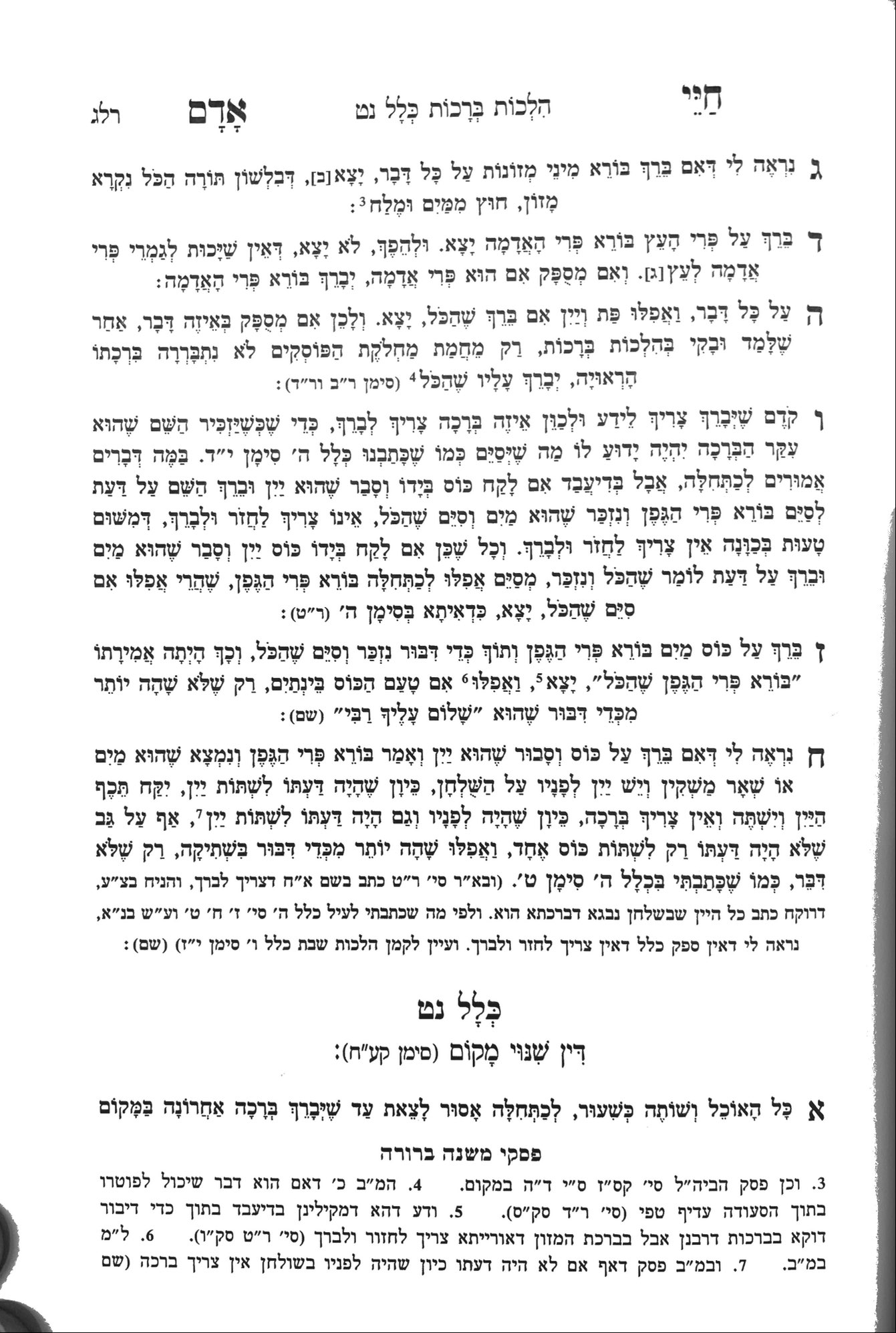We are beginning siman 4. If one recites haadama on a haeitz food, they are yotzei bedieved, but if one recites haeitz on a haadama food, they are not yotzei at all. One is not yotzei with haadama on a haeitz food because it is a sheker to state that the item in question grew on a tree if in reality it grew from the ground. However, it is not completely incorrect to make haadama on an item which grew on a tree, because the tree itself sources from the ground.
Therefore, any time a person has a safeik whether an item is haeitz or haadama, they should make a haadama, because either way they are yotzei. The only possible exception to this rule that haeitz does not work for haadama is on the secondary parts of a fruit. The halacha is that if a fruit has multiple edible parts, the primary edible part is haeitz, and the secondary edible parts are haadama. Some poskim hold that if one makes a haeitz on the secondary parts, they are yotzei. Others disagree, however, one can rely on the poskim who hold that one would be yotzei bedieved.
In siman 5, the Chayei Adam writes that shehakol works for any food. Thus, in any case of safeik, one can make shehakol and fulfil their obligation. However, the Chayei Adam clarifies that safeik does not mean that a person did not do their due diligence to learn or clarify the correct bracha. If a person does not know what to do due to their own negligence or laziness, the poskim write that they are forbidden to eat that food until they go and clarify the halacha. Safeik refers to where a person did their due diligence and clarified the halacha to the best of their ability, but the halacha is still unclear to them, or the poskim themselves do not come out with a clear psak. Only in such a case is a person permitted to make a shehakol lechatchila. However, if a person makes a shehakol even out of laziness, they are yotzei bedieved.
Summary
-
If one recites haeitz on a haadama food, they are not yotzei.
-
If one recites haadama on a haeitz food, they are yotzei bedieved
-
One can recite shehakol on any food and be yotzei.
-
Lechatchilla, one should only rely on this halacha if they have done their due diligence to clarify the correct bracha and still are unclear.
-
Bedieved, even if one does not attempt to clarify the correct bracha, reciting shehakol will work.
-



